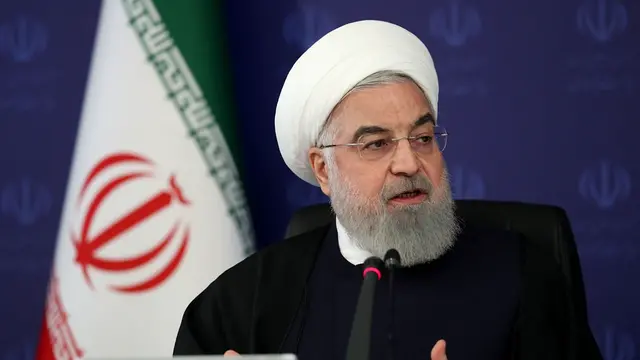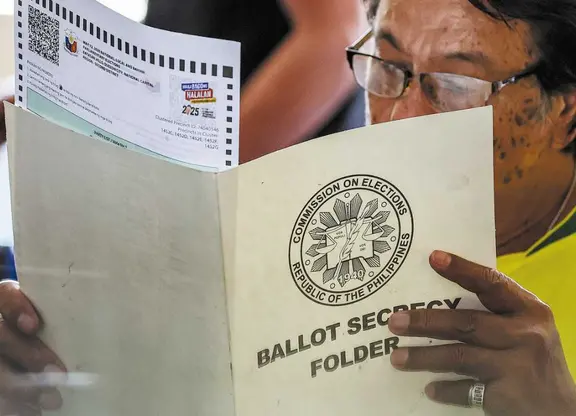Iranian President Hassan Rouhani on Wednesday told the United States it "should not plot against the Iranian nation every day," amid fresh tensions between the two countries.
Tehran and Washington have traded barbs over a spate of incidents in the past year involving their forces in the sensitive waters of the Gulf. Their latest high-seas confrontation came on April 15, when the U.S. said 11 Iranian boats harassed its navy ships in what it described as the international waters of the "Arabian Gulf."
President Donald Trump then tweeted that he had ordered the U.S. Navy to "shoot down and destroy any and all Iranian gunboats if they harass our ships at sea."
Rouhani on Wednesday replied that "the Americans should know that this gulf is called the Persian Gulf, not the New York Gulf or the Washington Gulf."
"They must understand the situation by that name and by the coastal nation that has protected this waterway for thousands of years," he said in a televised address during a cabinet meeting.
"The soldiers of our armed forces in the guardians of the Revolution – the army, Basij (paramilitary organization) and the police – have always been and will be the guardians of the Persian Gulf," he added.
The naming of the Gulf is a disputed issue between Iran and some Arab nations.
Iran and the United States have been at loggerheads for decades. Tensions between them have escalated since 2018 when Trump unilaterally withdrew the U.S. from a multinational accord that froze Iran's nuclear program and reimposed crippling sanctions on its economy.
With Iran seriously hit by the COVID-19 outbreak, China has urged the U.S. to lift "immoral" sanctions on the country.
In a phone conversation with his Chinese counterpart on Monday, Rouhani said the illegal unilateral sanctions imposed on Iran should be lifted immediately.
Tehran and Washington have appeared to come close to a direct military confrontation twice since June last year, when Iran shot down a U.S. drone in the Gulf. On that occasion, Trump canceled retaliatory air strikes at the last minute.
In early January, Iran's top military commander Qasem Soleimani was killed in a U.S. drone strike near Baghdad airport in Iraq, which further escalated tensions in the region.
Iran fired a barrage of missiles at U.S. troops stationed in Iraq in retaliation.
(CGTN)
 简体中文
简体中文













